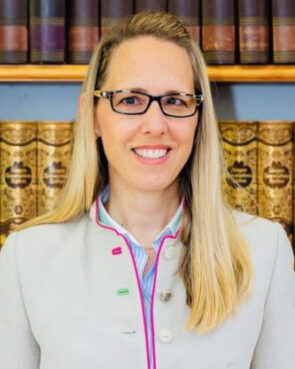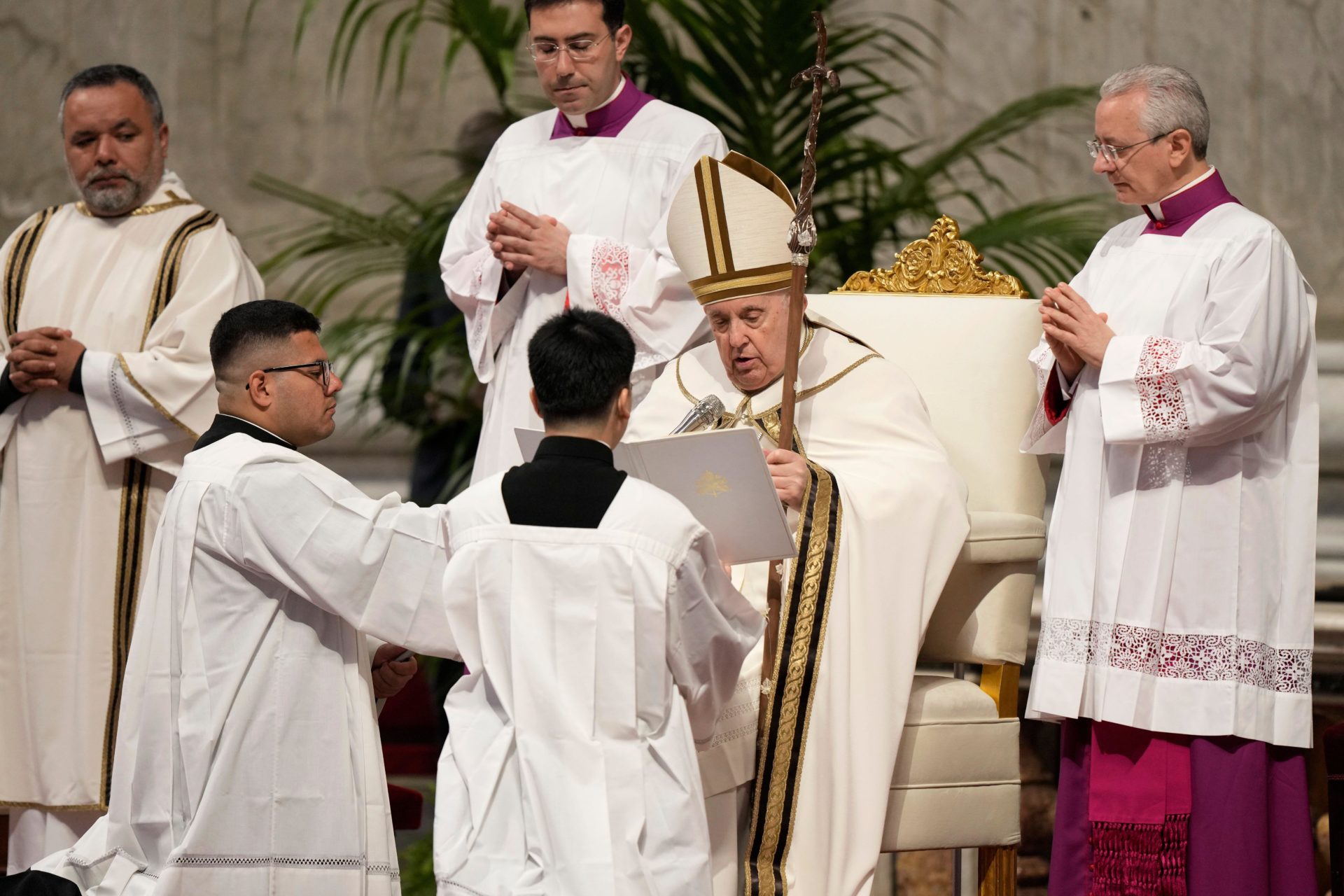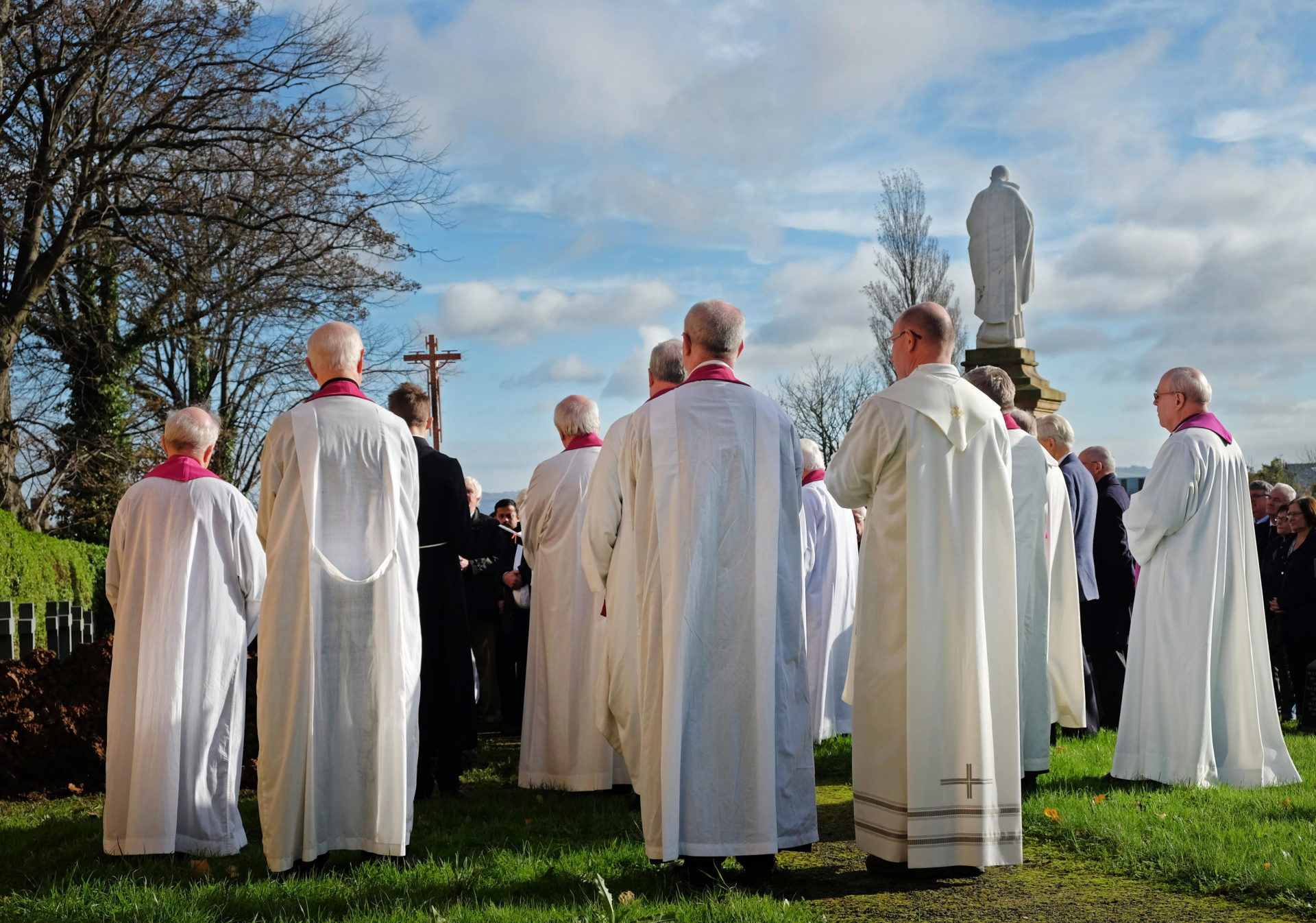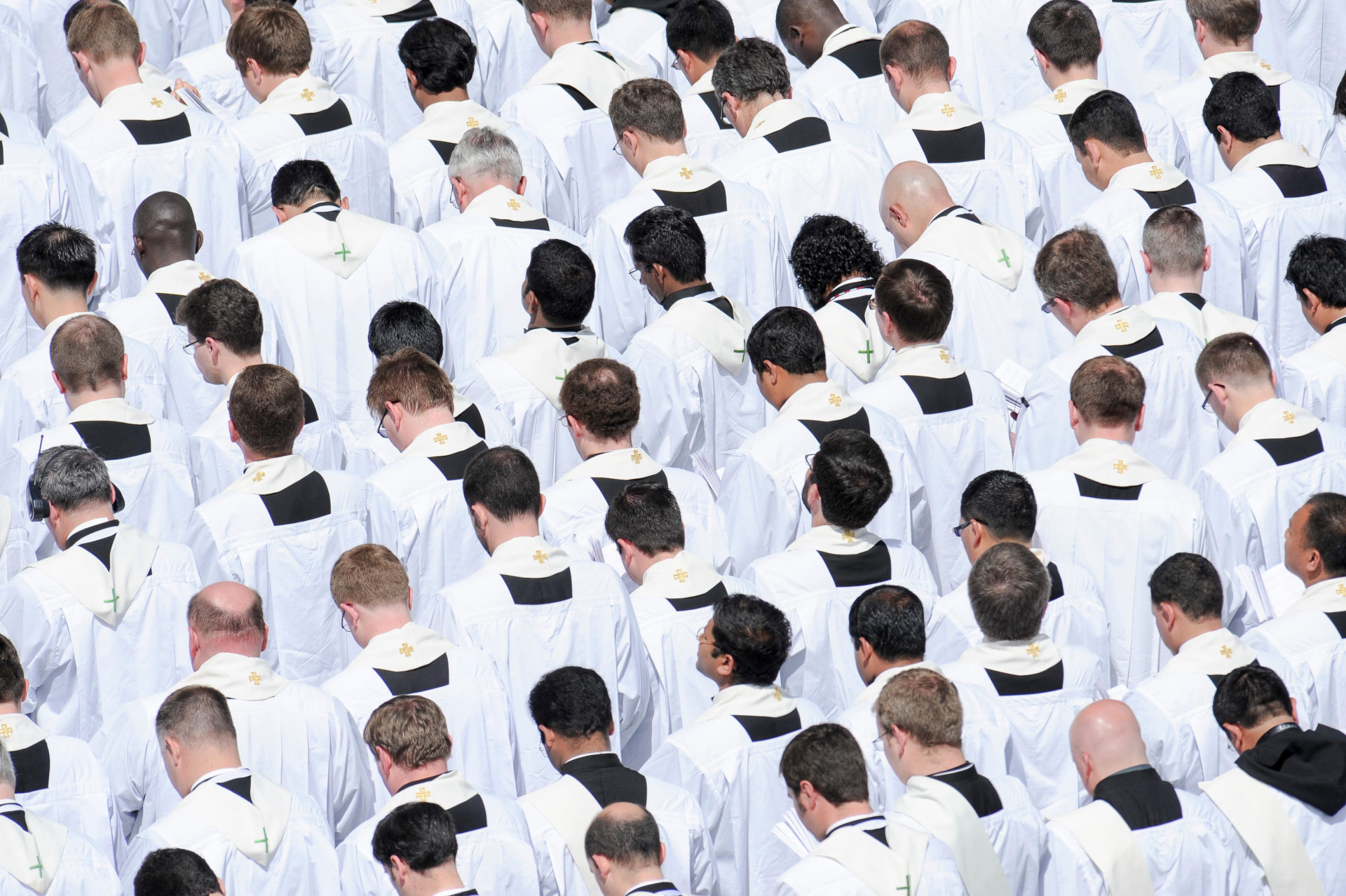— Despite Archbishop Carlo Maria Viganò’s recent excommunication for schism, experts believe that an actual split in the church is highly unlikely.

In September 2019, returning from a visit to Africa, Pope Francis reflected on the flight home to Rome on the tensions that were tearing at the unity of the church. “I pray that there will be no schism,” the pope told the Vatican press corps, “but I am not afraid.”
Since then, the threat of a formal split of dissident Catholics from the church or the creation of a separate sect has grown to be a major theme of Francis’ pontificate. Conservative and progressive Catholics alike have publicly challenged the authority of the pope and the Vatican, openly or implicitly hinting at an irreparable fracture in the church.
Recently the pope has moved against his critics on the right, excommunicating former U.S. papal nuncio Archbishop Carlo Maria Viganò for the crime of schism, forcing Cardinal Raymond Burke, the informal dean of the dissident right, from his Vatican post and removing Bishop Joseph Strickland from his seat in Tyler, Texas, for his anti-Francis agitation, mostly on social media.
For these and other conservatives, the pope has done too much to reconcile the church with modern social trends: opening its doors to women who want leadership roles and the LGBTQ+ faithful, restricting the saying of the Old Latin Mass and accommodating Beijing’s influence on the church in China.
Liberal Catholics, meanwhile, claim Francis has done too little to promote inclusivity and accountability in the church, calling on him to allow women to become deacons and blessings for same-sex couples and to do more to solve the issue of clergy sexual abuse. These issues have motivated the German church’s Synodal Path, a yearslong movement to answer popular drift away from the church with progressive, and largely unsanctioned, reforms.
Schism is nothing new in the church, starting with the Great Schism of 1054, which created the divide between Eastern Orthodoxy and Roman Catholicism before the Protestant Reformation fragmented the Western church in the 16th century. The most recent faction to fall into schism was the traditionalist Society of St. Pius X, founded in 1970 by the French Archbishop Marcel Lefebvre, who rejected the changes of the Second Vatican Council and consecrated his own bishops, for which he was excommunicated.

Viganò is thought to come the closest to provoking a similar split. In 2019, as Francis addressed the disastrous aftermath of the clerical abuse crisis in Ireland, Viganò published a fiery document accusing the pope of covering up the abuse of minors by ex-Cardinal Theodore McCarrick and calling for him to resign. Since then, he has called Francis “a heretic” and a “tyrant” and condemned the reforms of the Second Vatican Council while drawing closer to conspiratorial and radical wings of the church.
Setting himself up at the hermitage of St. Antonio alla Palanzana, about an hour from Rome, Viganò drew a crowd of discontented Catholics: evicted nuns, wealthy Italian aristocrats and reactionary priests. He created an organization, Exsurge Domine, with the goal of offering help and financial support to clergy who claim to have been persecuted for their traditionalist views.
But experts say Francis has skillfully dealt with critics on both sides by waiting for the right moment to act and by issuing documents clarifying his most controversial pronouncements. Massimo Borghesi, a philosopher and author of the 2022 book “Neoconservatism vs. the Field Hospital Church of Pope Francis,” Viganò can no longer be considered a representative voice of the conservative opposition to the pope.
“I don’t think that Viganò’s excommunication implies a schism,” Borghesi told Religion News Service on Monday (July 15). “It might still concern an absolute minority of traditionalists who believe that the church in Rome has betrayed the tradition of the church following the Second Vatican Council,” he said, but he has reached the apex of his following in the United States, where he had seen the most support.
“I don’t think this interests the majority of the American church,” said Borghese.
According to an April 2022 survey by the Pew Research Center, a three-quarter majority of Catholics in the U.S. view the pope favorably. Even though the country’s political polarization is a factor in their opinion — almost 9 in 10 Catholic Democrats support Francis, compared to 63% of Republican faithful — conservative Catholics recognize that the pope’s election was legitimate, even if they dislike his policies, Borghesi said.
“The conditions for the schism are not there. They are simply awaiting the next pope,” he said.
If Francis had gone after the archbishop in 2019 or 2020, Borghesi believes, he might have created a deeper split. Instead, he allowed time for tensions to pass and for many of his reforms to be assimilated into church life. In the meantime, Viganó’s increasingly radical positions have served to alienate his staunchest American supporters, who have stayed mostly quiet since the Vatican’s sentence in early July.
“These processes have cooled spirits and allowed more clarity within the church,” he said.
Similarly, Vatican chroniclers say, Francis has come through the direst threat from the left, as the German church’s Synodal Path has retreated from its most radical positions.

In 2022, German theologian Katharina Westerhorstmann announced she was resigning from the synodal commission that was studying relationships and sexuality because the Synodal Path’s rejection of official Catholic doctrine had drifted dangerously toward schism.
“For me there were some discussions that crossed the line, especially the notion where they seemed to have already decided where this was going and that those opinions that didn’t fit into that direction, shouldn’t really count,” Westerhorstmann said.
She and a group of theologians believed that while reforms were necessary to ensure safeguarding for children and vulnerable adults in the church, certain doctrinal aspects should remain unchanged. Westerhorstmann told RNS that while a schism was a definite possibility between 2020 and 2021, that is no longer the case today, despite a flare-up last year, when priests in Germany began blessing same-sex couples in violation of Rome’s ban on the practice.
“Right now, it seems that the negotiations with the Vatican are going well; there is more openness maybe on both sides,” she said. “In fact, I would say that there is no risk of a schism in the German church anymore at all.”
Both extremes now await the next conclave and the future pope, where the future of the Catholic Church will once again be decided.
Some observers say the greatest threat to the church today is not passionate dissent but disinterest.
Aurelio Porfiri, author of “The Right Hand of the Lord Is Exalted: A History of Catholic Traditionalism from Vatican II to Traditionis Custodes,” warned that while a full-blown schism is unlikely, a different kind of split is already underway.
“Some Catholic circles, not just conservatives, are drawing away from the church” said Porfiri. “I would describe this as a schism of indifference, where some Catholics are leaving the church, not because they object to one particular aspect or issue, but because they are no longer engaged.”
Complete Article ↪HERE↩!







